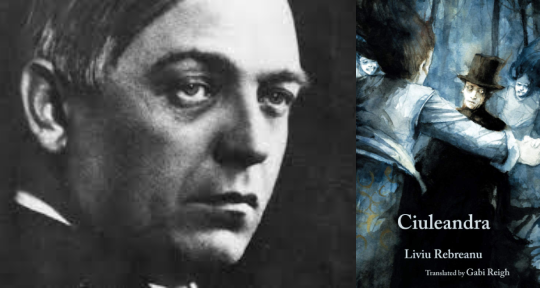Ciuleandra by Liviu Rebreanu, translated from the Romanian by Gabi Reigh, Cadmus Press, 2021
Hailing from rural Transylvania, the sober and profound Romanian writer Liviu Rebreanu used the novel form to discover both society and the individual at a moment of rapid national and global evolution. One example of such a drama, depicted in Rebreanu’s deft style, is The Forest of the Hanged, which tells the tale of two brothers who fight for opposing sides in the First World War, though most of his novels are focused around agrarian life. Ciuleandra, however, tells a different story: that of Puiu Faranga, a high society dandy of 1920s Bucharest, who strangles his beautiful young wife, Mădălina, and descends into madness in a private sanatorium, under the—apparently—cold gaze of a certain Dr. Ursu. Though more classical than experimental (Rebreanu seems influenced by Balzac and Tolstoy and thus represents rather an anecdotal writer than one influenced by psychoanalysis), Ciuleandra has its seat, without a doubt, among the great novels that have emerged from Modernism.

